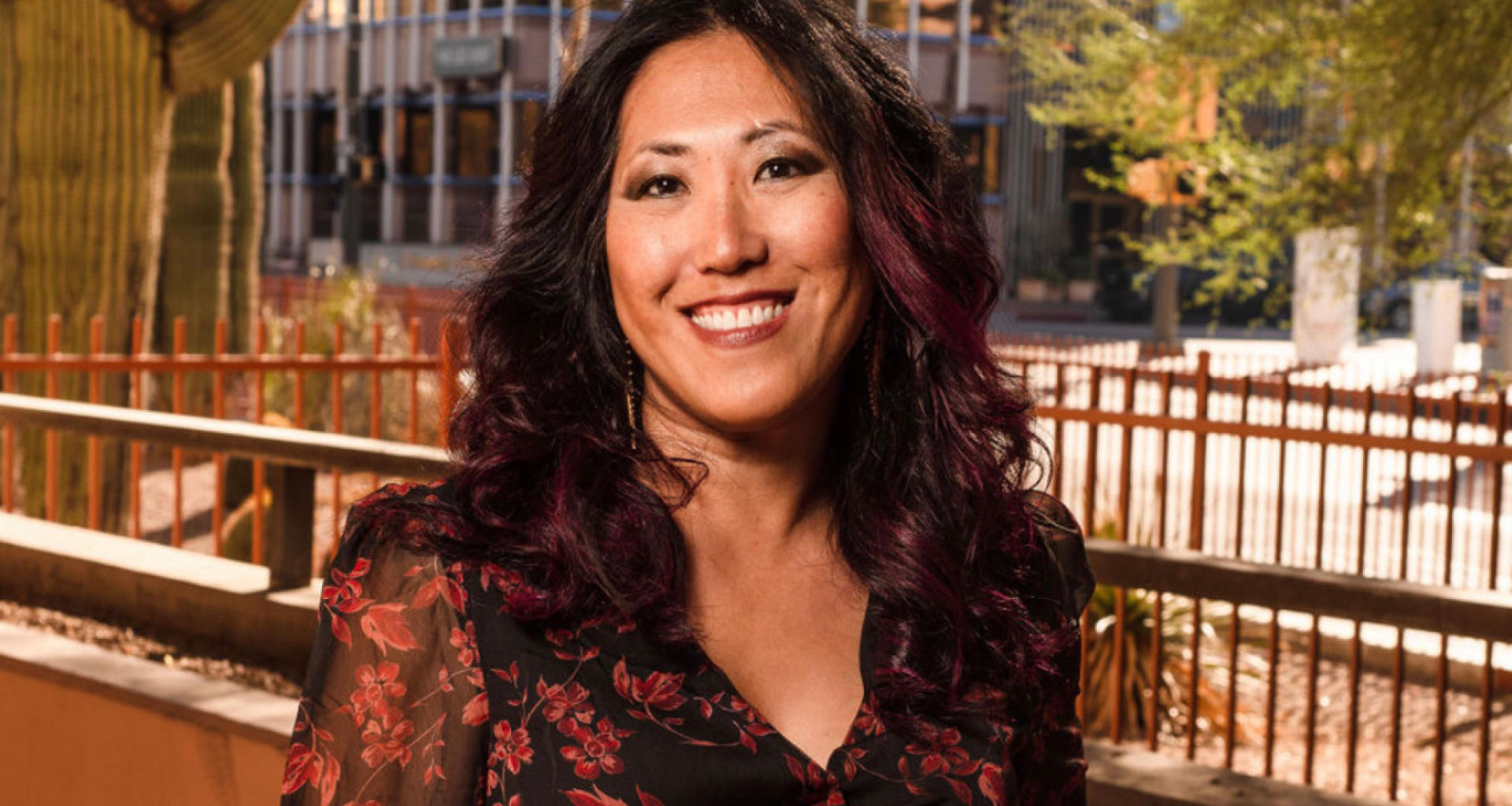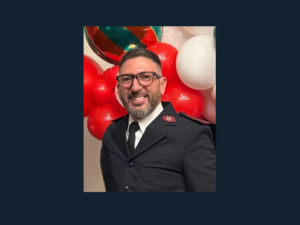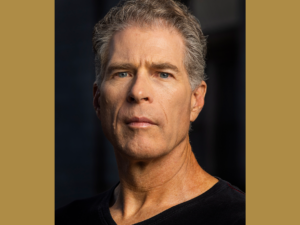On this show, we like to share stories of everyday people turning hope into action in small, real-life ways right where they are.
As we like to say, you don’t need to do anything “big” to have a big impact.
And that even, maybe especially, when your day is filled to the brim even the smallest of actions add up to make a difference.
Well today, as part of our Warm Hearts, Warm Homes series, I am bringing you one of those stories.
As a quick refresher, in this series we’re asking how we can embolden a spirit of care and community, especially in these coldest weeks of the year.
The Salvation Army believes no one should be without a place to call home.
And yet, we know last year, the U.S. experienced a more than 18 percent increase in the number of people experiencing homelessness, the largest annual jump since the count began in 2007.
Others may have a roof overhead but struggle to afford basic essentials like a coat or this month’s gas bill.
So we’re asking, how can we warm hearts and homes in tangible ways for our neighbors in need? And we’re exploring simple, practical ways you can make a difference in your community.
Today, we’re focusing on warm clothing—and stick around to the end to hear this week’s challenge for you.
First, I want to introduce you to Suzanne Pickering.
As a representative of Banner Health, Suzanne started a winter coat and blanket drive in partnership with The Salvation Army in Tucson, Arizona.
She knows firsthand what it is like to need a little help—and after seeing people without a warm coat amid freezing temperatures, she said she decided to do something about it.
She said, “The Salvation Army once helped me and it was exactly what my family needed—hope.” Now some 20 years later, she organized this Warm Up Tucson drive—doing what she can with what she has right where she is.
Show highlights include:
- Winter weather risks in the Desert Southwest.
- More about the Warm Up Tucson drive, and items most needed.
- Role of partnerships between healthcare providers and social services organizations in creating broader community support.
- Why Suzanne is personally invested in this work.
- How she reconnected with The Salvation Army.
- Her advice to get involved in making a difference.
Listen and subscribe to the Do Gooders Podcast now. Below is a transcript of the episode, edited for readability. For more information on the people and ideas in the episode, see the links at the bottom of this post.
* * *
Suzanne Pickering: I currently work as a physical therapist assistant for Banner Home Health Physical Therapy in the Home Health Department. So I go from home to home, and depending on the illness or the disease process or the injury, we work to rehab them, patients, to their prior level of function.
Christin Thieme: We don’t often think of Arizona as being a particularly cold place. So what do people need to know about winter weather risks in the Desert Southwest specifically?
Suzanne Pickering: So in February specifically, it’s an odd month in regards to weather, so today being 70, but a couple weeks ago, we were at near-freezing temperatures. So it is unpredictable and we do get cold weather here. You will see many people on the streets wrapped up in blankets. But yes, it does get cold, believe it or not. And February, like I said, is one of those months that are quite… It can be one temperature one week and completely different the next, so it’s unstable. Right?
Christin Thieme: Yeah, it keeps you on your toes. What is the need then locally, given that shifting weather, those changes, can you share more about the Warm Up Tucson drive that’s happening?
Suzanne Pickering: I would love to. Banner is collaborating with the Salvation Army to collect as many clothing items, specifically jackets and blankets, to collect for the homeless. So being that we are typically a warmer state, we have a very high number of homelessness. There are camps in the desert, there are people on the streets. And so as the cold weather is here, the need is great because it’s not something that we typically prepare for or people would expect to have.
Christin Thieme: What items are you finding are most needed, or what are you hoping to collect most of?
Suzanne Pickering: So the big items are going to be jackets and blankets specifically. In my field, in the home health field, we drive. So I am able to see more than if somebody were to work in a clinic, perhaps. So driving from one side of town to the other or into another town, we will often see the homeless on the streets with a raggedy blanket or no jacket and their arms wrapped around themselves trying to stay warm. So warm blankets, of course, and jackets are the biggest need that we see because it’s not something that is planned for.
Christin Thieme: As somebody who works in providing healthcare, what role do you think that partnerships between healthcare providers like Banner, like yourself, and social services organizations like The Salvation Army, what role does those partnerships play in creating a broader community support?
Suzanne Pickering: So I work for Banner Hospital, the Home Health Department specifically. So when we think of Banner Health, we think of either a hospital or we think of a clinic, but we often fail to think that there are other ways to provide services. And so I think I want to reiterate that Banner Health is not just about inpatient care or hospital care, that Banner cares about people in general and that we are very big on philanthropy, giving back to others, and giving back to the community. And the Salvation Army has been around for years and it has done good for millions of people. And the collaboration between the two is just a good fit because we can not only help people inpatient or in a hospital, but we are also able to take that a step further by helping the community and those who cannot get into a hospital or to an inpatient clinic.
Christin Thieme: Why are you personally invested in this type of work?
Suzanne Pickering: So my involvement with this project is personal because back in 20, let me think, 2013, I believe it is, I moved here from California. I came with a carload of stuff and two children. I was staying with a friend for several months trying to get back on my feet and it was soon Christmas. And the one thing as a mom is you always want to be able to provide for your children, not just food and shelter and clothing, but being that I had small children, Christmas was really important. I wanted to be able to have them have the same memories that I did as a child, so presents, but I was not in a situation where financially I was able to do that. And I think that no parent should have to decide between shelter, food, the basics, and Christmas presents.
And so it was then that I was able to reach out to the Salvation Army and they were able to put my children’s name on a list and they were given gifts so that they could have a Christmas.
So fast-forward many years, I’ve been in Tucson now 21 years. I have always said that I wanted to give back in some way and I really didn’t know how until this opportunity came about. And it was perfect because it’s pretty amazing how life can circle back and it was just, I feel like it was meant to be.
Christin Thieme: Can you share more about how did you get reconnected?
Suzanne Pickering: So I am involved as a community liaison for my department, so we try to do several different projects through the year. We assisted with a breast cancer walk. We also did hosting two family, meals for families who could not afford Thanksgiving. And so being that I am able to basically go from home to home, I’m seeing the need every day on the streets. And it really is heartbreaking to see anybody wrapped around, being wrapped up in a blanket or not having something.
And so I had asked my manager, “Hey, for my next project, I would like to do a coat donation and get some clothes so that we could hand out,” and I really didn’t have a way to do it. And of course my supervisor was completely on board. And so we started it, actually just the Home Health Department, and I decided that that wasn’t enough. I wanted to go big and go home because my specific department is amazing when it comes to giving back, but I wanted to blow it up on another whole level. And so I reached out to my district manager, Kim Lane, who was like, “Great idea. Let’s see what we can do.”
And so meanwhile, I had been putting emails and phone calls in to different types of services out there, and I really wanted to include the Salvation Army. So with a lot of collaboration between emails and meeting in person, and management and Banner getting together with their higher-ups, we were able to make it happen and become an actual collaboration where it was an actual project that we wanted to take on, not just one department at a time, but the entire Banner Health community.
Christin Thieme: I love it. So do you have a goal for how many items you’re hoping to collect?
Suzanne Pickering: I do have a goal. So we probably dropped off about 20, between 20 and 25 boxes, and they’re rather large boxes. So my personal goal is to have every single one of those boxes filled.
Christin Thieme: Okay. We’re talking a lot in recent weeks here about this idea of warm hearts and warm homes. What do you see as the connection between physical warmth and feeling at home in a community?
Suzanne Pickering: So I mean, Tucson has been my home for 21 years and we see a lot of things in home health and just the health industry as it is, and it’s not just about tangible things, things that you can touch and see. It’s really a matter of having it all. And meaning by that is sometimes we just want somebody to care about us. We see people in the street and we see a lot of things that we wish we didn’t see. And a lot of times we say to ourselves, I wish I could do this,” or, “I wish I could do that,” but we don’t act upon that.
And so when we have organizations like Banner and we have organizations like the Salvation Army that can do that by giving to somebody and saying, “Hey, we cared enough about you to get you these items so that you can live a dignified life,” I think it doesn’t matter how much money we have or it doesn’t matter the home size that we have, it’s a matter of being treated like a human, being treated like you have dignity, and most of all, feeling like you matter on this earth. We don’t know everyone’s story, and so to judge somebody, unless you are in their shoes, is really… It’s not necessary.
And so being able to give because you want to give back is the best thing that you can do because it really does impact somebody else’s life, and you may not know how, but I will tell you the little things in this life matter. And so having somebody help another person is really the biggest gift I think that you can give somebody and to say that, “I care.”
Christin Thieme: I love how you said that you see something and you say, “I wish I could do something,” and we can. Like you said, all those little small things add up to make a big difference.
What would you say to somebody who maybe doesn’t have the organizational bandwidth behind them like you do with Banner to create this type of drive but wants to get involved in making a difference? What would you say to that person?
Suzanne Pickering: So I would say, first of all, think about what it is that you really want and think about why you want to do it. So make it personal because if you don’t make it personal and you don’t have a story, you’re not going to be as willing or committed. So when you volunteer for something or if you want to do something, I think that it should really come from the heart, and usually we volunteer for specific things for specific reasons.
Christin Thieme: We talk a lot about hope on the show, so I like to ask, what is giving you hope recently?
Suzanne Pickering: I think the amazing impact that this has made on all of the clinics and how much they really want to help. We started with one department and we are now in urgent care, we are in dermatology, we are in multi-specialty clinics, we are in the children’s clinic, we are even in Green Valley. And to see the overwhelming response, and it’s not just from the employees. The Cancer Center, believe it or not, most of the donations are from the patients, which if you think about it, they’re the ones going through chemotherapy. They’re the ones through radiation, they are the patients, yet half of the donations are coming from them. That speaks volumes to not only what Banner is doing for the Salvation Army, that speaks volumes for the patients of Banner and the community itself.
I’ve also got phone calls for private donations, because they have seen our advertisements on the TV or in a flyer, for me to come and pick up carloads of stuff at a time. That is pretty profound. Seeing that we started off very small and now are in 12 to 15 different places, it’s a pretty overwhelming response.
Christin Thieme: Isn’t that great? Suzanne found a simple, yet powerful way to get involved in her community and do good for others.
And now it’s your turn! This challenge is about more than fuzzy feelings—it’s about taking action to warm hearts and homes in tangible ways. Each week, we’ll share simple but meaningful ways you can make a difference.
So this week’s challenge: Can you clean out your closets and gather gently used coats, boots, and gloves and blankets to donate? Maybe involve your kids in sorting and packing up items.
Then bring your donations to your local Salvation Army where they can be distributed to your neighbors in need. Simply head to westernusa.salvationarmy.org to find the location nearest you.
Imagine the warmth and comfort your donated clothes will bring to their new owners.
And of course you can always give to the ongoing work of The Salvation Army, including in these coldest days of the year at caringmagazine.org/give.
Remember, no act of kindness is too small, and every connection matters. I hope this challenge helps you experience the joy of giving and inspires you to continue spreading warmth all winter long.
Additional resources:
- If you are one of the hopefuls, get on the list for the Do Good Digest, our free 3-minute weekly email newsletter used by more than 20,000 hopefuls like you for a quick pick-me-up in a busy day.
- If you are enjoying this show and want to support it, leave a rating and review wherever you listen to help new listeners hit play for the first time with more confidence.
- If you want to help The Salvation Army serve more than 24 million Americans in need each year, give today. Your gift of money, goods or time helps The Salvation Army do good all year in your community.
Listen and subscribe to the Do Gooders Podcast now.












